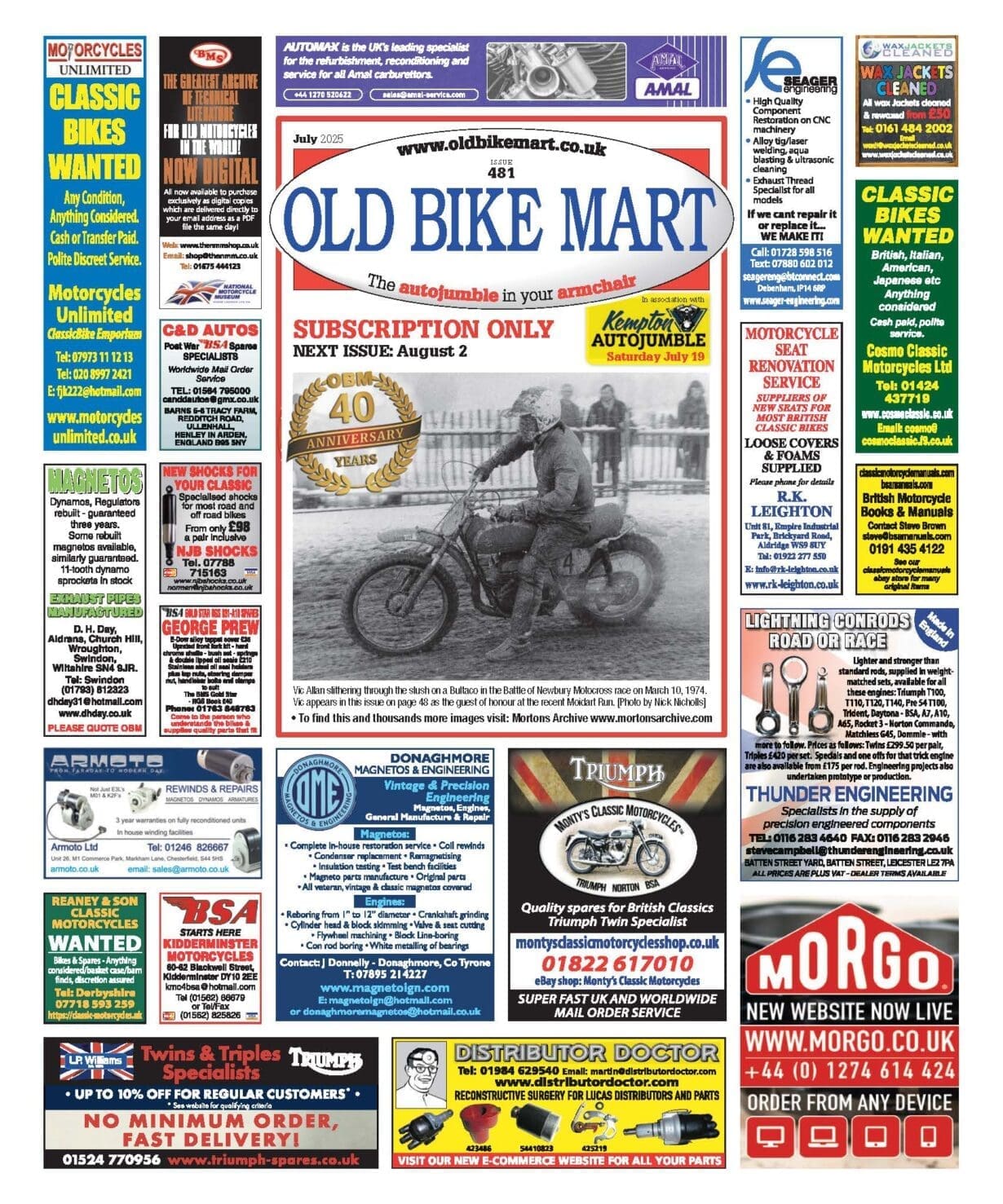Land that belongs to the Ministry of Defence is, by and large, inaccessible to the general public. However, Ian Kerr finds a way that we can use that land to our advantage…
Kevin Allaway, the joint clerk of the course for the annual pre-’65 Talmag Trophy Trial run on the MoD land at Hungry Hill, Aldershot, points out in his foreword of the event programme that this year is the 65th running of the event.
Started by John Allaway, the family still form the backbone of the trial, which attracts a large entry from home and abroad and an even larger spectator pool each year, despite limited advertising beforehand.
Historically, there has been a Talmag Trophy Trial in existence since 1946, run by The Territorial Army (London) Motorcycle Club, which had actually been formed prior to the war.
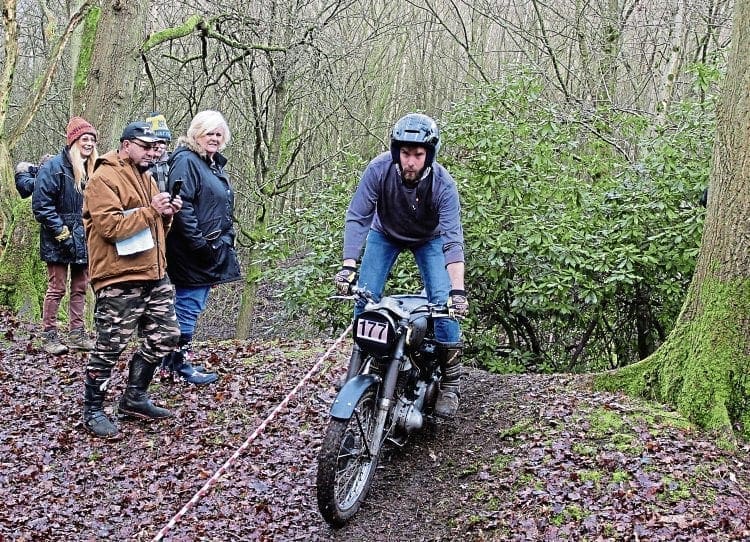
But, the name Talmag actually comes from the title of the club magazine which they published at the time.
After the war the club itself took on the moniker as it was shorter, running various events until the Talmag became a ‘four-stroke only’ trial for British machines in the Seventies.
At this time, of course, two-strokes were becoming the dominant force in ‘modern’ trials and the Talmag gave older, heavy British machines a new lease of competition life.
Regulations were written to ensure that the bikes entered appeared as close as possible to those that originally came from the factory and had been used in competition either before the war, or in the period after, up to 1965.
Hence the diversity that can still be seen today with converted road machines of the period being used, as well as genuine competition models.
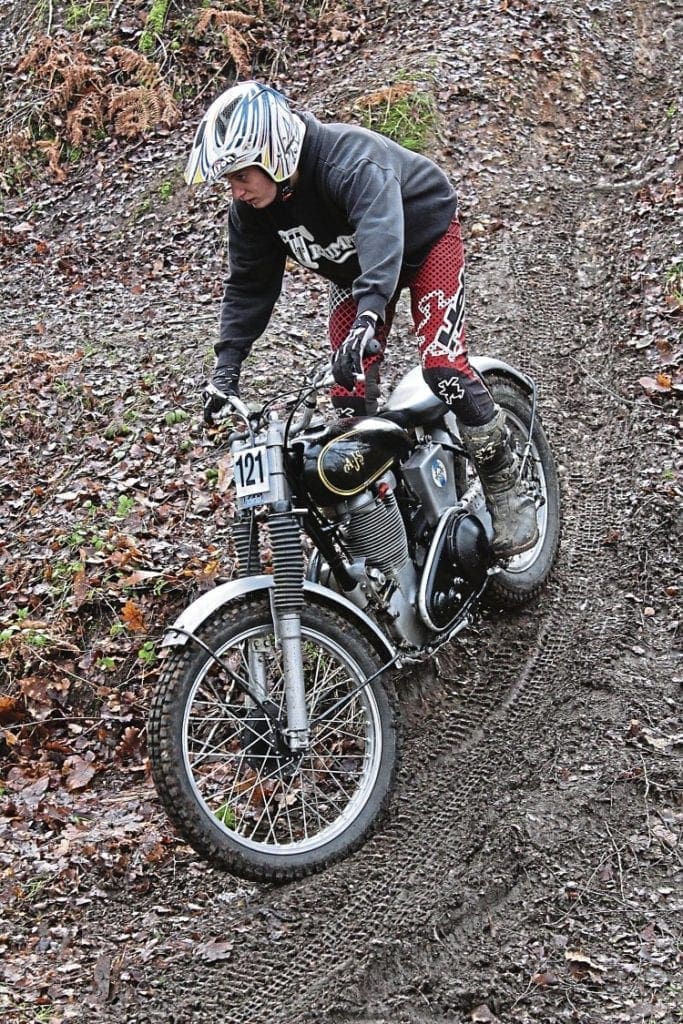
Back to the present, you might expect that the well-oiled machine that ensures the smooth running each year may well adopt the mantra, “if it ain’t broke, don’t fix it”, but this year saw a series of firsts, including the acceptance of electronic ignition.
But, the biggest change was a move to a third, harder, route for those riders who wanted a greater challenge in an event that has always prided itself in providing a day’s fun for the once-a-year rider.
Looking at the final results, with all the class winners remaining clean, apart from the girder fork and sidecar classes dropping minimal marks, the routes for all competitors seemed just right.
It was certainly a year for the one-off special test to be used to decide the overall winners, with many of the 200 riders in each class all remaining clean over the two laps of 15 sections and requiring the speed test to separate them.
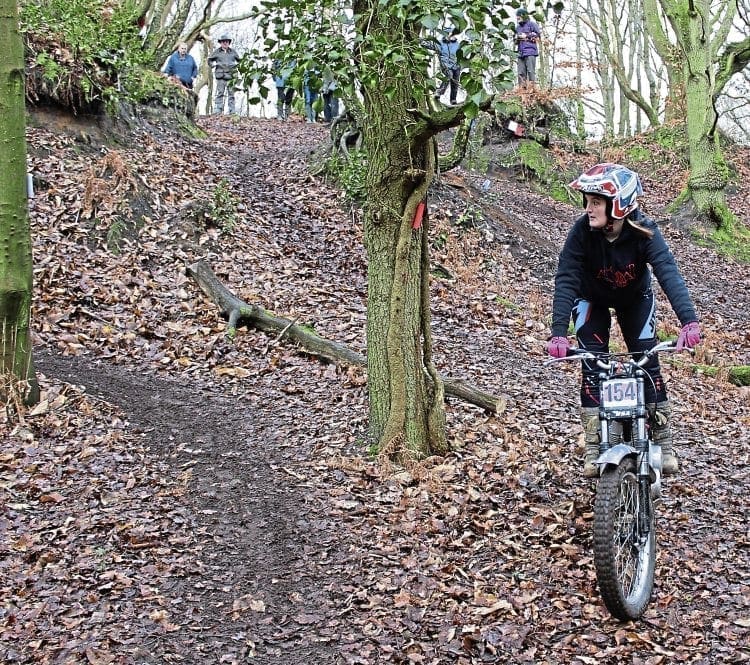
Despite recent heavy rain, which managed to hold off for most of the day, the sandy army land had drained well as usual, providing a good level of grip for the bikes, which ranged from original oily rag machines, right through to some immaculate restored versions featuring some considerable weight-saving features.
In some ways the same can be said about the riders’ clothing choice, as modern materials in bright colours have in many cases replaced the old heavier wax cotton garments that were no doubt de rigueur when the event first started!
A few new tricky sections featured along the side of the ridge that provides some of the steep climbs for which the event is famous, but all still keeping with the aim of providing a sensible day’s sport for the riders.
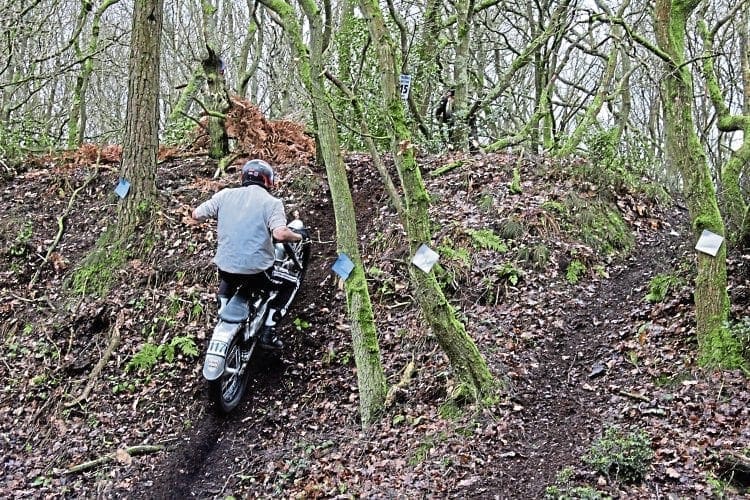
As well as a few more female competitors taking part, the age demographic also seems to be coming down slowly, which bodes well for the future and longevity of the trial, which featured a tea tent within the route for the first time to give riders a breather and a cake or two for extra energy! (Cakes you say? Hmm, who can I borrow a bike from for next year’s Talmag? – Ed)
As usual, there were a few private machines for sale to tempt those spectators who may have become enthused enough to want to have a go in the future, although a line-up of shiny bikes from a dealer who was in the car park with unrealistic telephone number prices may well have kerbed that thought!
Overall, the event continues to provide an excellent showcase of the sport and classic motorcycling and the two minutes of coverage subsequently shown on the local BBC news programme – at primetime – no doubt attracted new potential visitors to next year’s trial.
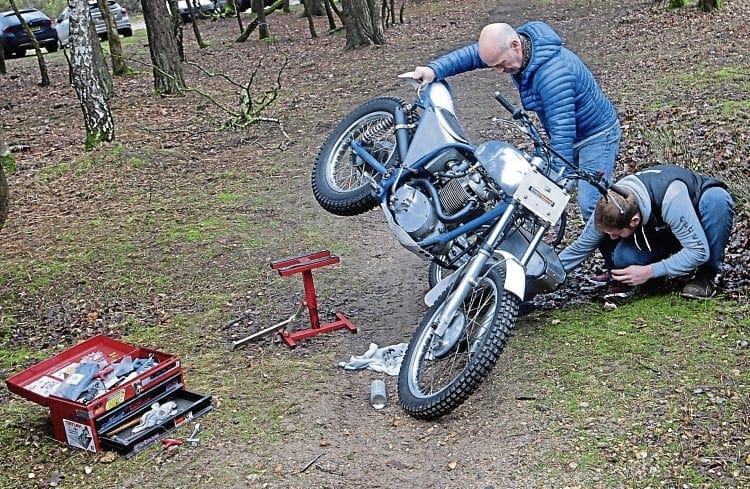
Certainly, it is an event to put into the calendar for the last weekend in January as a reminder of trials that used natural obstacles and continued forward motion as a means of testing machines and riders!
View more images and read more News and Features in the March 2020 issue of Old Bike Mart – on sale now!


